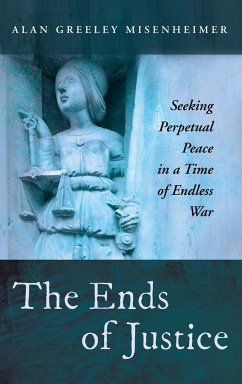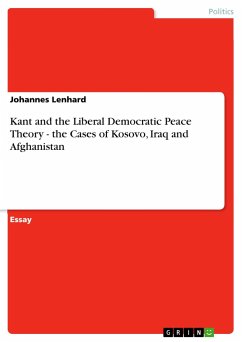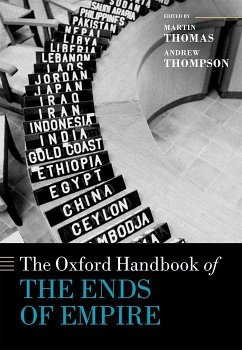
The Ends of Justice
Versandkostenfrei!
Versandfertig in 1-2 Wochen
35,99 €
inkl. MwSt.
Weitere Ausgaben:

PAYBACK Punkte
18 °P sammeln!
US forces have been engaged around the globe since World War II, and "endless" war has become the backdrop of American life. This militarized status quo is rife with contradiction. The Constitution requires a congressional declaration of war, yet the executive branch routinely acts alone to dispatch forces and launch attacks. The norms of republican self-governance stipulate alignment between popular will and public policy, yet our post-9/11 wars in Afghanistan, Iraq, Syria, and elsewhere have proceeded without public support and often despite public opposition. These wars became endless preci...
US forces have been engaged around the globe since World War II, and "endless" war has become the backdrop of American life. This militarized status quo is rife with contradiction. The Constitution requires a congressional declaration of war, yet the executive branch routinely acts alone to dispatch forces and launch attacks. The norms of republican self-governance stipulate alignment between popular will and public policy, yet our post-9/11 wars in Afghanistan, Iraq, Syria, and elsewhere have proceeded without public support and often despite public opposition. These wars became endless precisely because they lacked declared ends. Like the mythical Cyclops, the United States has embraced perpetual conflict as an end in itself. This is unacceptable, and un-American. Our history and our values demand a national security policy that recognizes the hard-wired human longing for justice as the key to decisions of peace and war. As citizens of a self-governing republic, we must ensure that US wars are fought with discrimination and proportionality, undertaken for legitimate, significant, transparent, and achievable goals, and entered as a last resort in the pursuit of justice.













